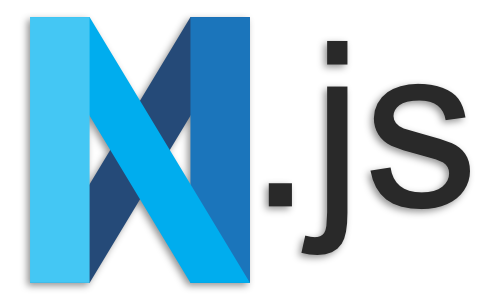@bbp/nexus-sdk
Blue Brain Project | Nexus | Nexus API Docs | Sandbox
Examples | Getting Started | API Documentation | Development | License
This is a handy javascript toolkit that helps people just like you to interact with Blue Brain Nexus to build things like client-side applications, scripts, or backend services.
Get Started
install with your favorite package manager
npm install @bbp/nexus-sdkimport inside your client or node.js
import { createNexusClient } from '@bbp/nexus-sdk';
const nexus = createNexusClient({ uri: 'https://api.url' });Now go and add use Nexus, such as adding resources to a project
Setup your token on client creation
const nexus = createNexusClient({
uri: 'https://api.url',
token: 'my_bearer_token',
});Middleware
You can enhance the behaviour of Nexus Client with middlewares called Links.
This will add your middleware link to the front of the execution order, but it will still
call triggerFetch and parseResponse links at the end. This is convenient if you just need
to add something to your payload request, such as changing headers.
const nexus = createNexusClient({
uri: 'https://api.url',
links: [someMiddleware],
});You can also use the linksOverwrite property to provide your own middleware, without any defaults.
In this case, it might be useful to include the @bbp/nexus-links package to call triggerFetch and
parseResonse somewhere else on the chain.
This might be usefull for implementing client-side with the native Cache api.
important! this will overwrite any suppled links array in the links property.
const nexus = createNexusClient({
uri: 'https://api.url',
linksOverwrite: [
detectCache,
triggerFetch(fetch),
cacheResponse,
parseResponse,
],
});Context
You can setup a "context" object that will be passed from links to links as part of the operation
const myMiddleware: Link = (operation: Operation, forward: Link) => {
const { myApiClient } = operation.context;
// do something with your API client
return forward(operation);
};
const nexus = createNexusClient({
uri: 'https://api.url',
context: {
myApiClient,
},
});Recipes
Set your bearer token before each request:
const setToken: Link = (operation: Operation, forward: Link) => {
const token = localStorage.getItem('myToken'); // get your token from somewhere
const nextOperation = {
...operation,
headers: {
...operation.headers,
Authorization: `Bearer ${token}`,
},
};
return forward(nextOperation);
};
const nexus = createNexusClient({ uri: 'https://api.url', links: [setToken] });Log response time:
const logResponseTime: Link = (operation: Operation, forward: Link) => {
const time = Date.now();
return forward(operation).map(data => {
console.log('request took', Date.now() - time, 'ms');
return data;
});
};Dispatch a redux action on every requests:
const reduxDispatcher: (dispatch: any) => Link = dispatch => (
operation: Operation,
forward: Link,
) => {
const prefix = '@@nexus';
const actionName: string = getActionNameFromPath(operation.path);
dispatch({
name: `${prefix}/${actionName}_FETCHING`,
payload: operation,
});
return forward(operation).map(data => {
dispatch({ name: `${prefix}/${actionName}_SUCCESS`, payload: data });
return data;
});
};Node.js support
The Nexus SDK relies on fetch, so in order to use this library in Node.js, you need to provide a fetch implementation when creating a new client. We recommend using node-fetch or even isomorphic-fetch if you build a universal app.
Request Cancellation is using AbortController, so you need to polyfill it. As documented in node-fetch, you can use abort-controller as a polyfill.
Example:
// pure node app
const fetch = require('node-fetch');
require('abort-controller/polyfill');
const nexus = createNexusClient({
uri: 'https://sandbox.bluebrainnexus.io/v1',
fetch,
});
// universal app
require('isomorphic-fetch');
require('abort-controller/polyfill');
const nexus = createNexusClient({
uri: 'https://sandbox.bluebrainnexus.io/v1',
});
// and then
nexus.Organization.list()
.then(orgs => console.log(orgs))
.catch(e => console.error(e));API
Admin
Knowledge Graph
Resources | Schema | Files | Views | Storage | Resolver
Identity and Access Management
Realm | Permissions | Identities | ACL
Misc.
The client also exposes bare http methods that can be use for operations on a resources using the _self url for example.
/**
* Methods exposed are:
* - nexus.httpGet
* - nexus.httpPost
* - nexus.httpPut
* - nexus.httpDelete
* - nexus.poll
* - nexus.context
*/
// post something as text
nexus.httpPost({
path: 'https://mySelfUrl.com',
headers: { 'Content-type': 'text/plain' },
body: 'Some text',
});
// get something as blob
nexus.httpGet({ path: 'https://mySelfUrl.com', context: { as: 'blob' } });
// poll something
nexus.poll({ path: 'https://mySelfUrl.com', context: { pollTime: 1000 } });
// you can access a base URL from context if you want to use it somewhere, for example:
const baseURL = nexus.context.uri;
const mySource = await nexus.httpGet(
`${baseURL}/sources/${orgLabel}/${projectLabel}/${resourceId}`,
);You can also import constants for default view IDs or default Schema IDs:
import {
DEFAULT_ELASTIC_SEARCH_VIEW_ID,
DEFAULT_SPARQL_VIEW_ID,
DEFAULT_SCHEMA_ID
} from '@bbp/nexus-sdk';
nexus.View.get('myorg', 'myproject', DEFAULT_ELASTIC_SEARCH_VIEW_ID)
.then(view => { // do something with my view})
.catch(err => console.error(err));Development
How is the repo structured?
This repo is managed as a monorepo using lerna that is composed of multiple npm packages.
Make sure you perform the make actions in the repository root directory!
Using Docker
If you don't have Node.js installed on your machine, you can run a "docker shell" with
make dshellfrom which you'll have a fully working Node.js environment. Make sure you have already installed both Docker Engine and Docker Compose.
Do things
- Install:
make install - Build:
make build - Test:
make test - Lint:
make lint





